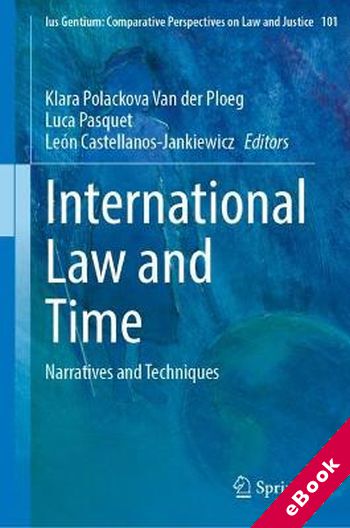
The device(s) you use to access the eBook content must be authorized with an Adobe ID before you download the product otherwise it will fail to register correctly.
For further information see https://www.wildy.com/ebook-formats
Once the order is confirmed an automated e-mail will be sent to you to allow you to download the eBook.
All eBooks are supplied firm sale and cannot be returned. If you believe there is a fault with your eBook then contact us on ebooks@wildy.com and we will help in resolving the issue. This does not affect your statutory rights.
This book explores the close, complex and consequential - yet to a large extent implicit - relationship between international law and time. There is a conspicuous discrepancy between international law's technical preoccupation with the mechanics of temporal rules and the absence of more foundational considerations of how time - both as an irrepressible physical dimension manifesting in the passage of time, and as a social construct shaped by diverse social and cultural factors - impacts and interacts with international law. Divided into five parts and 21 chapters, this book explores key aspects of the relationship between international law and time and puts the spotlight on time's fundamental significance for international law as a legal order and as a discipline. Pursuing diverse approaches to international law, the authors consider the notion, significance, manifestations, uses and implications of time in international law in a wide range of contexts, and offer insights into the various ways in which international law and international lawyers cope with time, both in terms of constructing narratives and in devising and employing particular legal techniques.